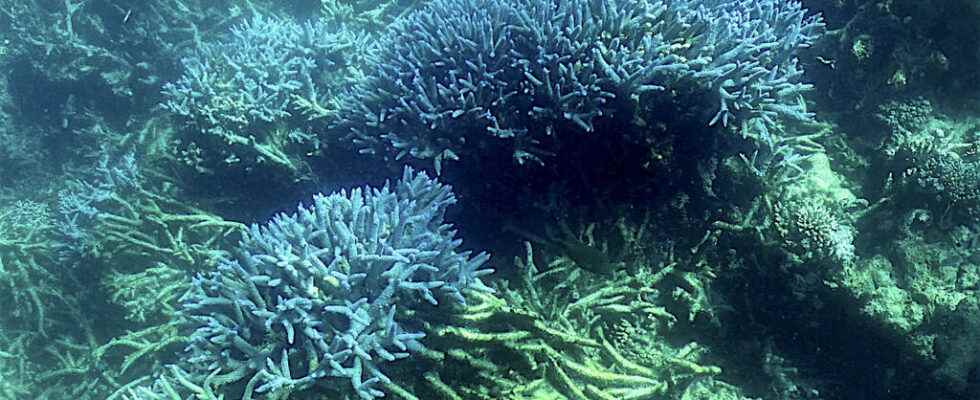In recent days, heat waves have hit Europe in particular, but the heat waves do not only affect the atmosphere. They can also affect the seas and oceans and have serious consequences on marine ecosystems.
The water temperature is currently 28 degrees on the Côte d’Azur. Very hot, too hot for the period. If the phenomenon lasts five days, Jean-Pierre Gattuso, researcher at the CNRS, explains that we will then speak of ” marine heat wave “. ” The ocean absorbs more than 90% of the excess energy linked to the increase in the greenhouse effect, explains the scientist. And so most of the heat generated by human activities finds its way into the ocean, causing sea temperatures to rise steadily and also leading to extreme events. Temporarily, we can have these marine heat waves for fairly short periods. »
Mortalities
And even if we managed to limit global warming to 1.5 degrees by 2100, the frequency of marine heat waves would still increase 20-fold, scientists say, with serious consequences. “ Since it is intense and of short duration, most of the consequences are mortalities. In the Mediterranean, massive mortalities of about fifty plants and animals have been observed. And then there is also the example of coral reefs in the tropics which are very, very seriously affected », continues Jean-Pierre Gattuso.
And behind it is the entire food chain and the marine ecosystem which is affected in cascade with an impact also on fishing and other human activities.
